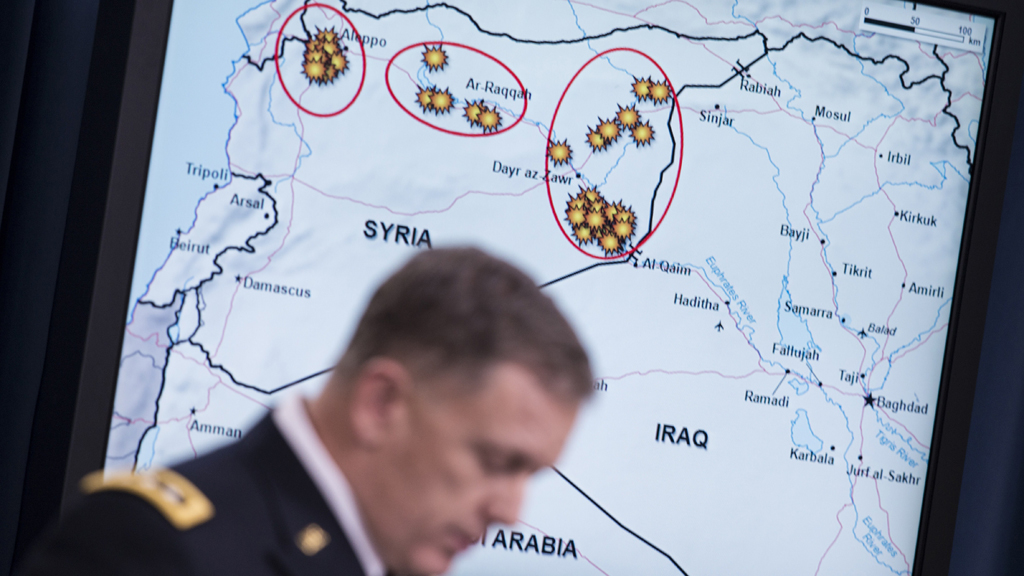Air strikes in Syria hit Khorasan group – but who are they?
When President Obama announced that US and Arab warplanes had begun strikes against IS in Syria, he also said the US strikes had targeted the little-known Khorasan group. But who are they?

What is the Khorasan?
The “Khorasan group” is a network of “seasoned al-Qaeda veterans” operating out of Syria.
The phrase has been coined by US officials, who say the cell poses an “imminent threat” to the US and its western allies.
Intelligence about the activities of the Khorasan group is said to have contributed to the ban on uncharged mobile phones on planes introduced in July.
Where is the group based?
The group has been establishing roots in north-west Syria, where they have found a ‘safe haven’ amid the ongoing conflict.
They have attempted to recruit Americans and Europeans, whose passports allow them to travel more easily into the countries they want to target.
The majority of the militants have come from the Afghanistan and Pakistan region.
Who is their leader?
Muhsin al-Fadhli was the alleged leader of the Khorasan.
The 33-year-old jihadi had close links to Osama bin Laden, as one of a small circle of militants who knew about the 9/11 attacks before they took place.
Al-Fadhli is thought to have moved to Syria from Iran, where he until recently led the Iranian branch of al-Qaeda.
On Wednesday a US official said the United States believed it had killed al-Fadhli in its air attack two days earlier.
What’s the threat?
According to the Pentagon, the Khorasan were “nearing the execution phase” of an attack against Europe or the US ahead of Monday’s strikes.
Joint Chiefs chairman @Martin_Dempsey: We hit the Khorasan Group before they “may have scattered.” Disrupted “imminent attack plotting.”
— Ken Dilanian (@KenDilanianAP) September 23, 2014
An unnamed intelligence source told CNN the plot involved a non-metallic bomb, a toothpaste container, and clothes dipped in explosive material.
How does the Khorasan group relate to other forces in the region?
The Khorasan group is the “external operations arm” of the Nusra Front, al-Qaeda’s Syrian affiliate.
Unlike the Islamic State, which has set its sights on expanding a caliphate across the Middle East, the Nusra Front aims to establish an Islamist state in Syria. Meanwhile, the Khorasan are said to have their eyes on targets in the West.
Both the Islamic State and the Nusra Front stand in opposition to Syria’s President Assad.
Hannah Miller is Channel 4 News US researcher in Washington DC.
-
Latest news
-
Fans react to football clubs increasing season ticket prices4m

-
‘We’re still a long way from justice’, says infected blood scandal victim5m

-
Infected blood scandal: Victims set to receive billions of government compensation7m

-
Iran’s president and foreign minister missing after helicopter crash3m

-
Yungblud launches his own affordable music festival5m

-




